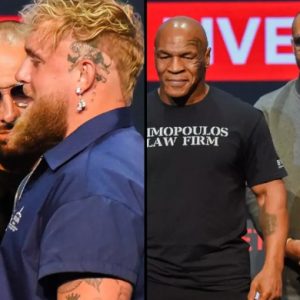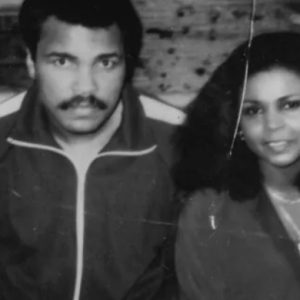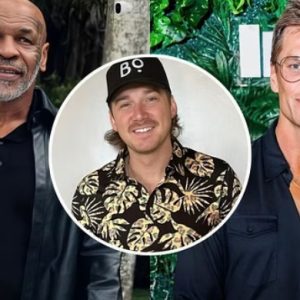Ask any boxing expert who Muhammad Ali’s toughest opponents were, and you’re likely to hear names like Joe Frazier, George Foreman and Ken Norton.

But no one knocked out “The Greatest” of all time quite like Mother Nature.
On Jan. 27, 1969, Ali was stranded in Fargo during a blizzard when his car got stuck in a snowbank outside of town.
The champ, his new wife, Khalilah Ali (formerly Belinda Boyd), and a friend were driving from their home in New York to the West Coast, where he was scheduled to do some college speaking engagements. However, they ran into some dicey weather on the Northern Plains.
Daryl Ritchison, director of the North Dakota Agricultural Weather Network, said for the most part, January 1969 was a very cold month.
“It did snow in Fargo that day — 1.8 inches,” he said, “but it was very likely windy as the temperatures fell after the storm, then it snowed another 3 inches on Jan. 29.”
Ali later said: “I was told not to come this way because the weather was tough. I didn’t pay no attention. I don’t believe I could be stopped. So I decided to drive, and we get about 50 miles out of Fargo and come over 94 interstate and ran into the ditch and got stuck. A few nice people came by and took me to town.”
When he got to town, he ended up at the train depot, where WDAY Sportscaster Boyd Christenson and Forum reporter Dan Nelson interviewed him. Ali, who is arguably the greatest sports personality of all time, didn’t shy away from talking about everything from Fargo’s weather and boxing to race relations, finances, and his young bride’s good cooking.
Sidelined by a blizzard
Archivist Shane Molander of the State Historical Society of North Dakota said he stumbled upon the WDAY film clip in 2017 almost by accident.
“I was searching through our film database for a requested topic when I spotted ‘Muhammad Ali’ in a description. Immediately, I figured this was a clip from the national news or something,” he said.
But then Molander read further: “Muhammad Ali talks with Boyd Christenson at the train depot.”
“Wow! I thought, what could this be?” Molander said.
Molander realized that it was a local interview provided by WDAY/WDAZ that was not digitized. (Forum Communications sends archived film and video to the state archives for safekeeping and historical purposes). So he got to work digitizing the film, writing a story for the State Historical Society blog and posting the film clips on YouTube.
A peek inside Ali’s life
Ali’s time in Fargo came at an interesting period in his life. Born Cassius Clay in Louisville, Kentucky, in 1942, he was a 1960 Olympic gold medalist before becoming the second youngest heavyweight champion of the world in 1964. He changed his name to Muhammad Ali that same year when he converted to Islam.
In 1967, he was stripped of his title and banned from boxing because he refused to be inducted into the armed forces during the Vietnam War for religious reasons. The case was headed for the Supreme Court. It was during this time that he set up the speaking engagements.
Contributed photo/State Historical Society of North Dakota/WDAY/WDAZ Film Collection
In the interview, Christenson asked Ali if he’d ever box again. Ali said it depended upon how his court case ended.
“If I do, it will be mainly for financial reasons, to pay lawyers, to pay bills. But in boxing itself, I cannot go too much bigger in popularity or praise. I’ve won all the titles. But the money would be good,” he said.
Ali said he thought he might even be making more money from his business ventures these days than he would be if he were still fighting. At the time, he said he was invested in 250 Champ Burger restaurants and owned a few oil wells. But he said competitors like Joe Frazier or James Ellis might convince him to jump back into the ring.
“They may get to the point that I got to where they’ve defeated every man on the planet, and will be looking for somebody to beat them and at that time they might try to get the old man out of retirement. If they paid me enough, I’d come back,” he told Christenson. (By the way, at the time, “old man” Ali had just celebrated his 27th birthday.)
Full interview between Muhammed Ali and Boyd Christenson
Ali did come back.
When the court case was settled in Ali’s favor in 1970 and his boxing license was reinstated, he said he held no ill will toward the government.
“They did what they thought was right. I did what I thought I was right,” he said.
Ali resumed his fighting career, achieving even greater success and fame in the ‘70s than he did in the ‘60s. He captured, lost and recaptured the heavyweight title repeatedly during the decade. He fought for the last time in 1981 and was diagnosed with Parkinson’s disease in 1984. He died in 2016 at the age of 72.
Fun with Fargoans
Let’s get back to that snowy January day in Fargo in 1969 when Ali caused quite a stir at the train depot.
Forum reporter Dan Nelson said he wasn’t far into the interview with Ali when autograph seekers began to realize who was making all the commotion in the train depot.
“See what all my talking did,” Ali said. “Even up here where folks don’t follow boxing so much, people still know the champ.”
Nelson noted that Ali seemed to spend more time with the female autograph seekers than males, even signing the inside of a nursing student’s textbook.

Forum archives
He said most fans approached Ali apprehensively and were sure to call him by his Muslim name, “while assuring him he was still the greatest.”
Based on Christenson’s and Nelson’s stories, it appeared Ali enjoyed his unexpected time in Fargo with his fans (even entertaining some with his famous Ali shuffle). However, he didn’t stay long.
Nelson noted even if planes had been flying in the blizzard, Ali wouldn’t have taken one. He didn’t like to fly.
Ali, his wife and friend boarded a 2 p.m. train out of Fargo, leaving their car behind and a great “brush with greatness” story for a few Fargoans to tell at dinner parties for years to come.
Christenson died in 2009, but his widow, Marlene Christenson, said she remembers her husband being very excited to meet the champ at the train depot.
“He raced right down there and was very impressed with Ali. I recall Boyd saying what a gentle, kind man he was. Somewhat unexpected for a boxer,” she said.
Boyd even brought home Ali’s autograph for his 3-year-old son, Mark.

Contributed Photo/Mark Christenson
Molander says making an accidental discovery in the archives, like he did with the Ali story, is one of his favorite parts about his job.
“It was a nice surprise. I just have never heard of such a big figure, at the time, coming to North Dakota, and how he got here. It’s just kind of a funny story,” he said.


